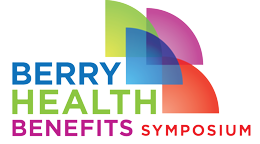
Carol L. Cheatham
Cheatham Nutrition & Cognition Lab, University of North Carolina at Chapel Hill’s Nutrition Research Institute, Kannapolis
Dr. Cheatham is a developmental cognitive neuroscientist and a member of the Nutrition & Brain Development Team at the University of North Carolina – Chapel Hill Nutrition Research Institute (NRI) on the North Carolina Research Campus. At the NRI, Dr. Cheatham is studying the effects of nutrients (e.g., fatty acids, choline, iron, zinc, antioxidants) on the development and functioning of the hippocampus and frontal lobes, brain structures that are integral to the formation and retrieval of memories and to higher-order cognition. She uses both cognitive testing and an electrophysiological technique known as event-related potentials in her work with adults, as well as behavioral assessments in her studies with children.
Dr. Cheatham earned her Ph.D. in Child Psychology with an emphasis in Neuroscience in September 2004 at the Institute of Child Development, University of Minnesota – Twin Cities (rated number one in the nation by US News & World Report) with Patricia Bauer and Megan Gunnar, both internationally renowned in their field. During her tenure at the Institute, she studied the development of memory and attention with Dr. Bauer, while simultaneously studying the effects of stress and social support on memory development with Dr. Gunnar.
She first became interested in the interplay between nutrition and brain development during her work with the chair of her dissertation committee, Dr. Michael Georgieff, a leading neonatologist who studies the effects of iron intake on brain development. Even though her dissertation did not have a nutrition component, the mentoring she received from Dr. Georgieff was invaluable for the understanding of the effects of nutrition on the brain. In addition, she began to appreciate the value of interdisciplinary ventures and came away with a desire to seek collaborative opportunities that cross traditional lines. She subsequently accepted a position on an interdisciplinary project at the University of Kansas Medical Center (KUMC) exploring the effects of docosahexaenoic acid (DHA), a fatty acid, on cognitive development. Dr. Cheatham views interdisciplinary work as a pathway to a cohesive picture of brain development and functioning.
In her recent research, Dr. Cheatham hypothesizes that DHA’s effects on the ability of the brain to process information or even the ability of the brain to utilize DHA when it is present may be differentially affected by background diet (e.g., the total fat composition of the diet) and the organism’s history (e.g., expression of genes). She is assessing the effects of omega-3 fatty acids on declarative memory using behavioral and electrophysiological (event-related potential) paradigms. Important to her work at the Nutrition Research Institute is the ability to classify participants by single nucleotide polymorphisms (snp) in genes that are involved in the fatty acid metabolism process and are possibly introducing a confound into the data as people of a certain genotype metabolize fatty acids more readily than others.
Dr. Cheatham’s goal is to elucidate factors surrounding hippocampal development in children and senescence in adults. She believes that a focus on the nutritional aspect of brain research is key to discovering possible interventions that would help improve brain development and slow cognitive decline, giving every child and adult a chance to maximize their own cognitive abilities.
Post navigation
← D
